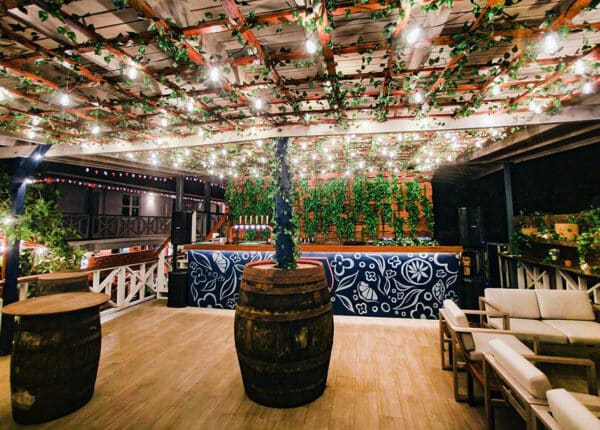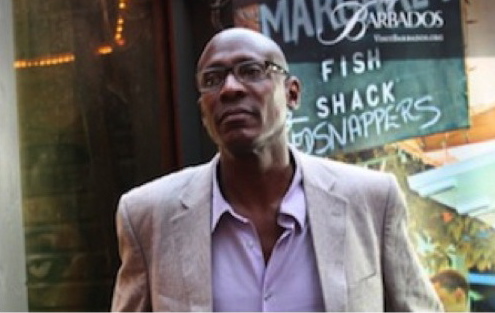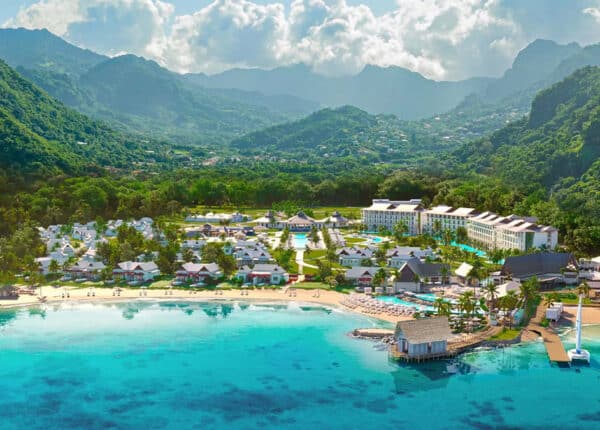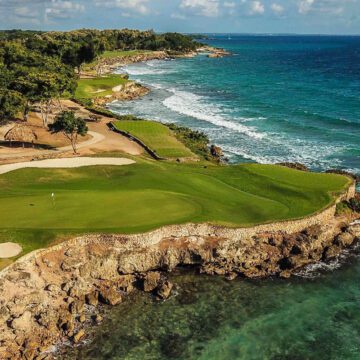Interview with Dr Keith Nurse: What Climate Change Means for Caribbean Tourism
By Alexander Britell
The Caribbean is continually looking for ways to emerge from the downturn. And with an economy largely dependent on tourism, a changing world economy – and a changing world climate — pose new problems for the region. The solution, says Dr Keith Nurse, is to tap into new markets and resources — from making the region more climate friendly, to harvesting the so-called “intangible heritage” of the islands. Unlike buildings and nature preserves, which are described as “built heritage,” it’s the region’s “intangible heritage” — things like Carnival and traditional knowledge, that can be a big part of the way the region markets itself going forward. Nurse, who is the director of the Shridath Rampal Centre at the University of the West Indies in Barbados, talked to Caribbean Journal about the impact of climate change on tourism, the Latin American market and the promise of the Caribbean’s intangible cultural heritage.
How would you describe the current state of Caribbean tourism?
In the global economic downturn, [the islands] are less visible, but also their expenditures have dropped per visit. Some territories in the region are faced with a 20 to 30 percent decline in terms of earnings. And in economies that are largely dependent on tourism — with some of them [with tourism] a 50 to 60 to 70 percent of GDP, you’re talking about a massive hit, in terms of the impact.
Several countries, including Jamaica, have announced plans to try to tap the Latin American market. What is the region doing in that regard?
I know [Trinidad] now has direct flights to Brazil, Rio and Sao Paolo, once a week, and that’s a good initiative, whether or not there’s enough traffic to keep it going is another matter. I think that that’s the challenge that is faced in several regions. [Trinidad] was developing both Cuba and Costa Rica a few years ago, and they were both running at a loss. They had to discontinue that route. In fact, I was stuck in Havana a couple of days because of that. From Trinidad, on [air carrier] BWIA, they ran direct flights from Trinidad to Havana, and to Costa Rica, and both didn’t work out. So they had to cut those routes after a few years.
You’ve written on the subject of the tourism impact of climate change. What is the impact for the Caribbean?
It’s multiple. There’s the ecological impact itself — rising sea levels, coral bleaching and weather patterns like increased hurricanes — all of which impact on the investment in the sector, and make the region increasingly unattractive for visitors. But then there’s the other impact, which is the impact of climate change policies. For example, airline passenger duties have been introduced by the UK [to pay for climate change fighting] which have an almost-immediate impact on the costs of travel to the region. In many countries that are dependent on the UK as a transit point into Europe, for example, out of Barbados, you have one option — Gatwick. In Trinidad and Tobago, and most of the English-speaking Caribbean, though whatever policies that are put nip lace to increase the cost of travel, have a major impact on one our biggest markets. For a place like Barbados, where 40 percent of the visitors come from the UK, it seems that any decline in numbers is a huge impact on the tourism sector.
Aside from actually preventing climate change, what can these countries do to adapt to changes that result?
Adaptation measures are critical of course. And the impact of many of the adaption measures, in fact, are things we needed to do in any event to secure the environment, and that depends on things like protecting the fisheries and coral reefs, things that we should have been doing all along — staying away from fossil fuels and towards renewable energy, including in the hotel sector. That’s something we should have been doing anyway, and now it makes it even more of an imperative. But the upside of all of this is that we can actually use the climate change agenda as a basis for diversifying the tourism product towards one that is more sustainable from an energy standpoint and to build a new kind of preference model for our visitors to the region — to sell the region as a climate-friendly one, and as a low-carbon tourism destination. All of those things are quite possible and realistic, and, in a sense, come with a different marketing proposition, to an increasingly sophisticated target market who are concerned about carbon footprints and so on, and other carbon labeling.
How much are regional organizations like CARICOM doing right now for tourism?
Obviously they could be doing more. There is a Caribbean Tourism Organization, which takes charge of that process. I think they’ve been doing a fairly good job. I think there is more that we can do, particularly in the [climate change] area. There’s also the Climate Change Center based in Belize. So I think we’ve been doing a credible job as well in terms of addressing some of these issues. But as it relates to tourism, I think more focused attention is still required. We haven’t begun to maximize on a lot of the new areas in tourism. With a lot of these specialty niche tourism markets, we are not tapping into our mystique in the region well enough. We’re still selling sun and sand and maybe a little bit of sex on the side. There’s a lot the region can offer and already does offer which we are not tapping into in a fast enough way, and we do that at our peril.
Barbados’ Bridgetown was recently named a UNESCO World Heritage Site. You’ve written extensively on cultural tourism, and the question of intangible cultural heritage. How much can more can the region do in this regard?
There are several sites around the region that have UNESCO heritage status, in Cuba, Belize and Guyana, and they’re mostly natural heritage and built heritage sites. I think it’s useful to brand the region, and to give some of those locals a stronger market prescience. It does instill confidence in investment in heritage. I think it’s a good thing for Barbados, in terms of strong and built heritage. Barbados is definitely one of the stronger countries in terms of built heritage. So the [UNESCO] award is really of good value. I was involved in the preparation of Trinidad’s candidate’s file for intangible heritage. We had put up Trinidad and Tobago’s Carnival for the awards scheme, and it never worked out, because of government failure here in Trinidad and Tobago. But the intangible cultural heritage is an area where there’s a lot more room for expansion, because it ties back into the tourism product — because most of the heritage sites in the region are a part of the colonial legacy — the built heritage of Europeans. But the heritage of the enslaved and indentured populations are captured in the popular culture and traditional art forms and traditional knowledge — and we need to validate those equally. So there’s a lot more to invest in those areas of heritage, and we need to encourage our countries to invest more in that process.







